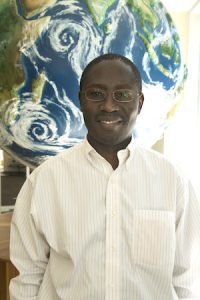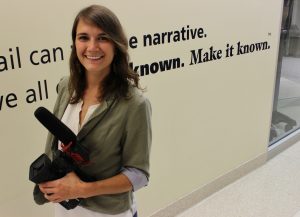News
OU Professor Claims Discrimination, OU Failures In Countersuit
By: Susan Tebben
Posted on:
ATHENS (WOUB) — An Ohio University Journalism professor facing a lawsuit and de-tenuring over sexual harassment allegations has countersued, claiming the university discriminated against him and conducted a “flawed” investigation.

The claims came in a 26-page answer and cross-claim by Dr. Yusuf Kalyango to a lawsuit filed by a former student employee of his, Tess Herman. Kalyango denied the claims of sexual harassment and said he wasn’t allowed the opportunity to cross-examine or “confront those accusing him,” according to court documents filed March 20 by North Canton-based attorney Gregory Beck.
The cross-claim targets Ohio University for “basic negligence” in conducting the investigation against him, including violating Kalyango’s 14th Amendment rights.
“The poor investigation, followed by (OU’s Office of Equity and Civil Rights Compliance’s) uncritical analysis, has so tainted the outcome that Dr. Kalyango can in no way afford himself of the protections contemplated in the due process clause of the 14th Amendment of the United States Constitution,” the documents state.
In discrediting the ECRC investigation, Kalyango argues the investigator took too long to come to a decision. He goes on to say the investigator’s recommendations came with “virtually no corroboration,” and were based solely on “the plaintiff’s subjective statements.”
“The protracted nature of the investigation and the flawed conclusions reached, along with the improper recommendations made by the biased investigator who was employed and paid by the employer who is responsible to conduct fair and objective investigations for the protection of both the complaining student and the involved educator, indicate the investigator was not qualified or objective,” according to the court filing.
Kalyango argued that, due to a lack of due process privileges, his reputation has been “destroyed,” and he has been deprived of the benefits of his job and tenure.
The de-tenuring process, in particular, has been unfair to him, the professor stated in the countersuit.
Kalyango claimed the report completed by a University Professional Ethics Committee (UPEC) “contained the results of the investigation couched in language inflammatory, racially-based, and retaliatory in nature.”
UPEC is a group tasked by university administration to decide whether the de-tenuring process should go forward. They are typically provided with related documents like the ECRC investigation in this case, and can interview anyone involved in the case put before them.
“The materials reviewed primarily consisted of the plaintiff’s self-serving text messages, and other improper conclusions reached by the investigator,” Kalyango argued in the court filing.
According to the UPEC report, obtained by WOUB, committee members were provided with the memorandum of findings from ECRC, a response to the memorandum from both Herman and Kalyango, and “evidence and supplemental evidence packets” including interviews with 16 witnesses, evaluations from the Young African Leaders Initiative (YALI) program, along with text and email documentation from Herman, Kalyango and “multiple witnesses.”

In the court filing, however, Kalyango said a request for a UPEC committee consisting of “professors from diverse backgrounds” was rejected by OU, leading to a committee that was “non-diverse and had limited knowledge of the true issues involving racial cultural diversity and travel to Africa.”
This cultural difference was also argued by Kalyango as reason for the original accusations made against him. He said the communications between him, Herman and others “likely involve mis-communication, misinterpretation or differences of perspective resulting from the difference between Dr. Kalyango’s ethnic, cultural and racial position.”
Two of the counts Kalyango leveled in the cross-claim are discrimination-based. In one count, Kalyango argues the university discriminated against him as a black male, and in another, he argues his race and national origin as an African was used against him by the university when he was “unjustifiably” placed on administrative leave with partial pay.
“Dr. Kalyango’s race, national origin and gender were factors that made a difference in Ohio University’s decision to subject him to wrongful charges of discipline and violation of policy procedures claims and administrative leave,” the filing states.
Regarding the original allegations made against him, Kalyango said Herman never spoke to him or anyone else about her concerns following the Africa trip as part of YALI, and was not reprimanded by Kalyango for “aggressive, angry, and unprofessional conduct” which she says occurred on the trip.
He also argues she did not file a complaint against him until after he sent an email “that was critical of her work” on financial reports for YALI.
“Without question, despite the allegations in the plaintiff’s complaint, the plaintiff has benefitted greatly from her work and affiliation with Dr. Kalyango and her work with YALI Connect Camps, activities which certainly appear on her curriculum vitae,” the countersuit states.
Kalyango asked the court to order the university to stop the de-tenuring protocol and reinstate him as a professor. He also asked that he be compensated for damages “in excess of $100,000.”
A message was left with Christopher E. Hogan, who is listed on court documents as counsel for the university. A message was also left with Michael Fradin, attorney for Herman.

